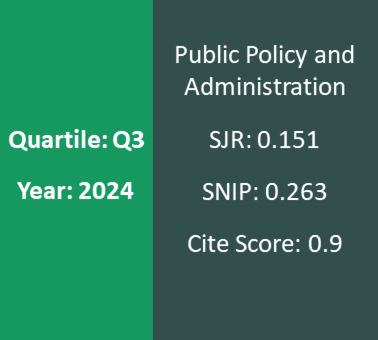Discovering Possibilities in Personnel Management in an Environment of Challenges
Keywords:
the world of manager, changes, the studies of management/personnel management, the excel studies.Abstract
One of the main characteristics of modern day economic activity is the increasing number of companies with
employees, producible goods and services provided that are constantly crossing national borders. The internationalization
of activity of organizations over the past 15 years is concurrent with the globalization of management
processes. Companies with fewer than 20 employees are becoming increasingly active in this process and their
influence on the economic and social results of nations are at a constant growth. In this respect, it can justifiably be
said that an organization’s successful practice is mostly predicated by their managers’ preparation to get involved
in the processes of the times, when one of the main aspects of their activity becomes the ability to involve human
resources in the changes that time has wrought and to effectively organize the activity of their employees. This is of
prime significance to Lithuanian organizations, because studies conducted in the field of human resources illustrate
that most organization leaders have insufficient competence to involve their personnel in change while also
actively integrating in the processes of current times themselves. Remarks made by European Union (EU) experts
that Lithuania should pay more attention to investment to immaterial assets, remain relevant to this day.
The first section of the article outlines the viewpoint of Lithuanian and foreign management professionals on
management theories and characteristics of practice in an environment of new challenges, and the portrait of a
manager in the world of the present. K Adams (1996) notes that managers operating in an international environment
have little to do with manager activity solely based on the national characteristics of their country. It is
acknowledged in the article that globalization of management necessitates pursuit of reconciliation of internal and
external environments and demands for constant changes within its organizations. Accordingly, managers have to
initiate change and pursue managing the destiny of the organization itself, i.e. be „proactive“. In addition, managers
are responsible for maintaining the balance of „collective“ and „personal“ domains; therefore their activity should
be based on „reactivity“. The author of the article consents with a remark made by J.M. Kouzes and B. Z. Posner
(2003), that optimal results cannot be reached by maintaining the standing situation, therefore, the main condition
for the survival of organizations in the environment of management globalization and increasing competition
becomes not so much the decision whether to accept or reject change, but the decision how to participate in change
as well as when and how to implement reforms in one’s organization. The author presents his vision on the variables
that influence the world of a modern manager by summarizing the manager’s universe of the recent decades and by
utilizing Harvard Professor M. Porter’s (1990) theoretical „Diamond“ model on competitive advantages.
The second section of the article covers the topicalities of current day management practice. The stereotype of
the chrestomathic organization manager that formed in the West (which poorly evaluates the situational world of
a manager, therefore insufficiently considers circumstances, under which, managers differently plan, organize and
motivate) has taken deep roots in Lithuanian management study programs. However, by focusing most attention on
developing their business, managers pay little attention to the competence of their employees and improving their
skills. It is noted in the article, that the viewpoint of an organization as a living system is not progressing enough in
Lithuania. This section presents results of empirical research conducted by the author, which confirm the statements
made by various professionals that many managers in Lithuania are still not sufficiently oriented towards the
rapidly changing world of the manager due to gaps in knowledge of management theory.
In the third section of the article identifies the causes for the situation at hand - the poor quality of management
studies, because most viewpoints presented in textbooks still invoke the concept of a simple and unchanging
manager’s world; textbook information is not tied with practice and the main focus during classes falls on dictation,
which results in chaotic teaching. This section presents the author’s viewpoint on studies of management in the
circumstances of change, with their main quality being the ability to motivate students to cultivate personal skills
- to get initial experience in independent interest on the theoretical provisions of management; to get to know one’s
personal qualities; to prepare for participation in change and to become aware of other of one’s merits and demerits.
It is acknowledged in the article that effective teaching of management is impossible if students do not accept
the study methodology proposed by the lecturer and the latter fails to compose a common team with students.
Conclusions of the conducted research are presented at the end of the article.





